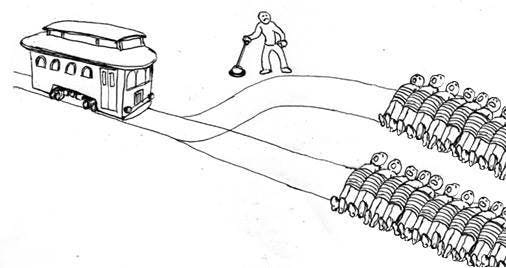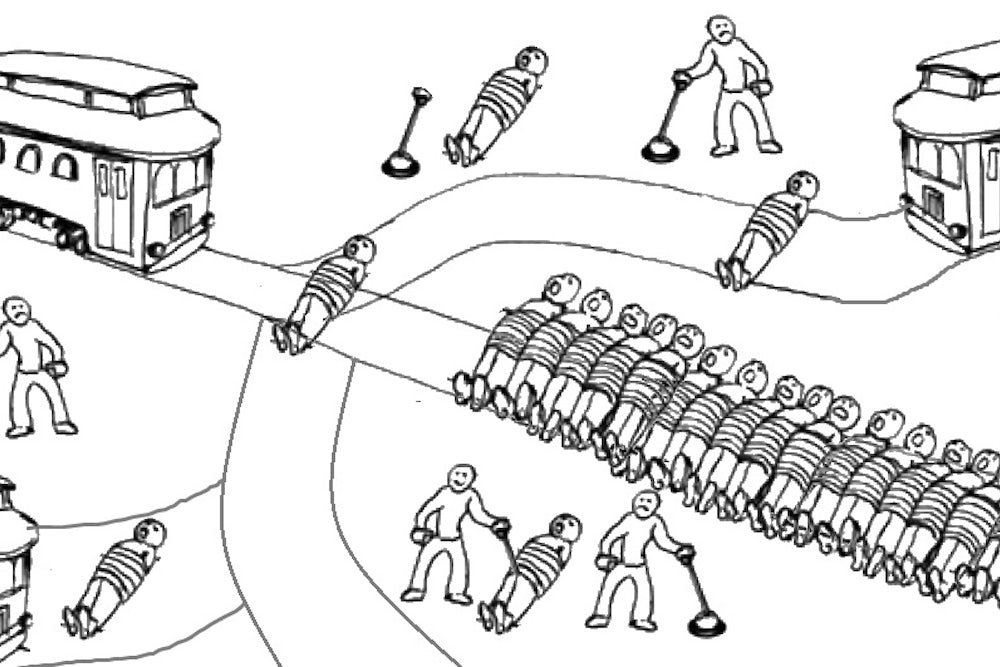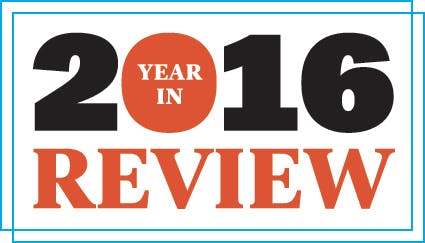
Imagine that you’re a rude teen hanging near some trolley tracks, kicking around rocks, when you look up and notice that five people are tied to the tracks. A trolley suddenly appears, careening towards them. You can save the five people by pulling a lever, thus diverting the trolley to a different set of tracks where another person (dang! Just your luck!) is tied up. Do you pull the lever, killing one to save five?
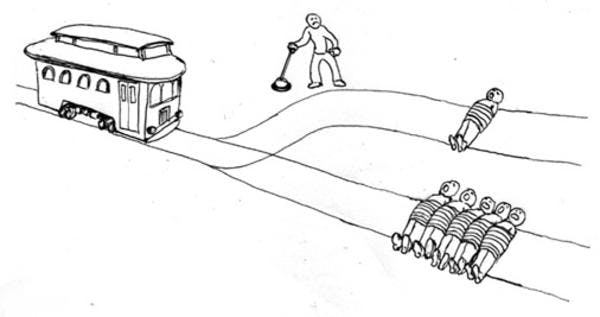
This thought experiment, devised by philosopher Philippa Foot in 1967, along with its sadder partner dilemma, the Fat Man (instead of flipping a switch, you have to push a fat man off of a bridge to stop the trolley from hitting the five people), has found a resurgence in 2016, becoming what Brian Feldman has termed the “Internet’s Most Philosophical Meme.” The Facebook page Trolley Problem Memes has grown to over 170,000 likes since its inception earlier this year; newly added memes attract thousands of likes and hundreds of in-depth comments (the inside joke “multi-track drifting” almost always inevitably comes up, which riffs off of another meme, the gory details of which are way beyond the scope of this piece). You can now buy t-shirts that say “I pulled the lever” or “I choose you to be my ethical dilemma” with a picture of the trolley on it. If something happened this year, you can bet that there is a trolley problem for it.
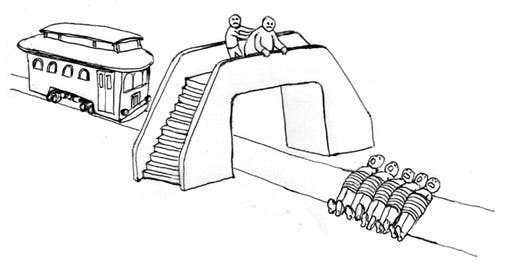
“Trolleyology” has been around for decades and even the meme itself isn’t new to this year—the image has been floating around 4chan boards since at least 2013. But 2016 was a year of high-stakes decision-making—from primary elections and Brexit to Hillary Clinton’s loss to Donald Trump—and the trolley problem, which boils decisions down to one exceedingly simple and funny question (do you pull the lever?), helped us to understand the absurdity of it all. This, perhaps, is why the meme spread so far this year; it allows us to point out the terms of a serious problem and then laugh at how dumb they actually are. Take, for example, the libertarian trolley problem that asks whether you should pull the lever to save five people, even though it means the trolley will be trespassing on private property.
Even the premise itself—taking an insoluble philosophical question and making it into a frowny meme—does just this. As Feldman pointed out, “The humor lies not in how people answer these questions, but in the scenario itself.” You only need to look at the face of this man, who must decide the fate of a bunch of people tied to trolley tracks that he happened to stumble upon, to understand how the meme sums up the mood of 2016. The same homely indecisiveness that made Ken Bone a viral sensation in November gave The Man With The Lever an even more enduring cultural currency.
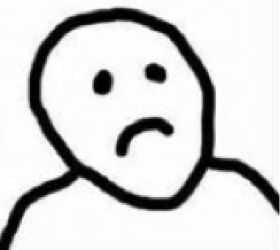
The trolley meme isn’t merely a philosophical conundrum that we pondered this year. It tells the story of 2016’s polarization and zero-sum politics. It presents us with an abundance of false equivalences and arbitrary ultimatums served with an abstract moral undertone—all of which signal that regardless of which levers you pull, or whether you push a fat man off a bridge, someone (be it Harambe, regular bae, or referendum voters) is going to get run over. Because it is a terrible lens for decision-making, the Trolley Problem is the best lens for looking at the decisions we’ve actually made. Here is 2016 as told by trolley memes.
Early Spring: Normal Life
Early spring was an age of innocence in the world of trolley memes. Season six of Game of Thrones was just starting and the GOP was still putting its faith in a Ted Cruz–John Kasich alliance that crumbled before it even began. This was also good time for fun and creative trolley memes, many of which were just combinations of other memes. What a world we used to live in.
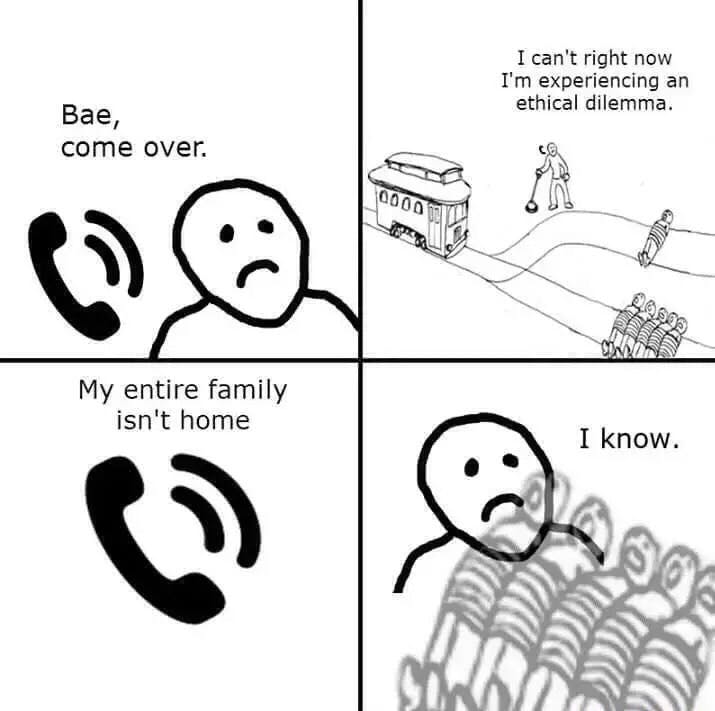
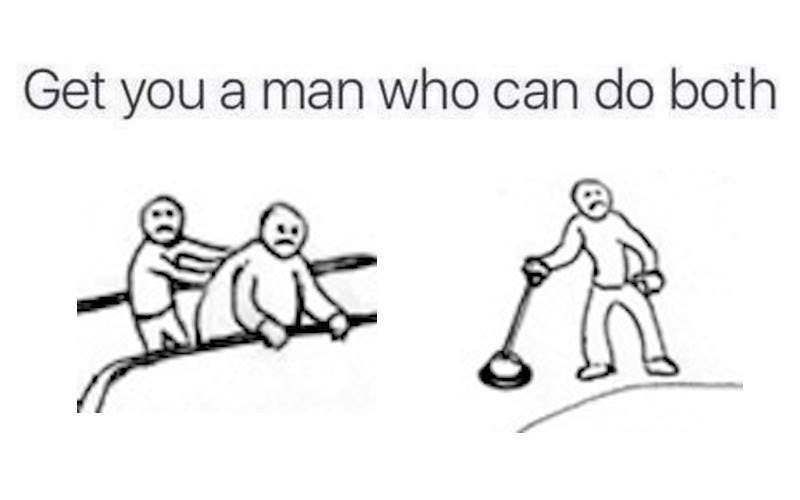
May: Harambe
The beauty of the trolley meme is how easy it is to connect with the very important news stories of the year. Take Harambe the gorilla, for example. When Harambe was shot at the Cincinnati Zoo, the world mourned. But who is Harambe without dead Harambe?
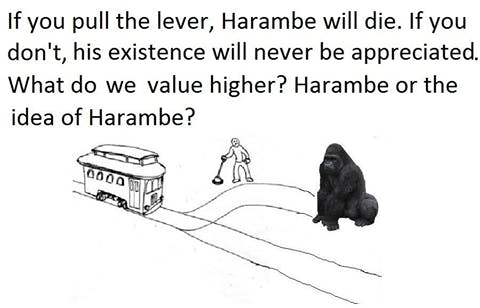
June: Brexit
In June, the Brexit referendum spawned several trenchant variations on the trolley problem. There was the trolley problem of direct democracy, which illustrated the disastrous consequences of adding too many men, each with separate levers to a scenario. And then there was the trolley problem that showed Britain gleefully choosing to fling itself straight into a wall.
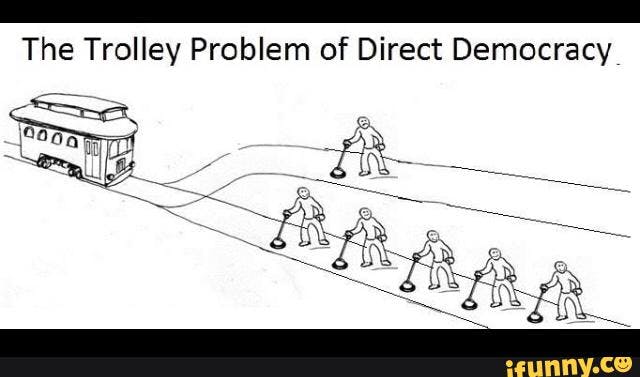
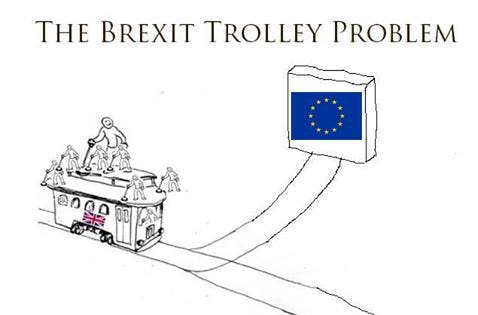
July: Pokémon Go
Pokémon Go was the app of the summer, taking our minds off of politics until politicians themselves ruined it. This is perhaps the hardest trolley problem of the year, depending, of course, on the CP of the Dragonair.
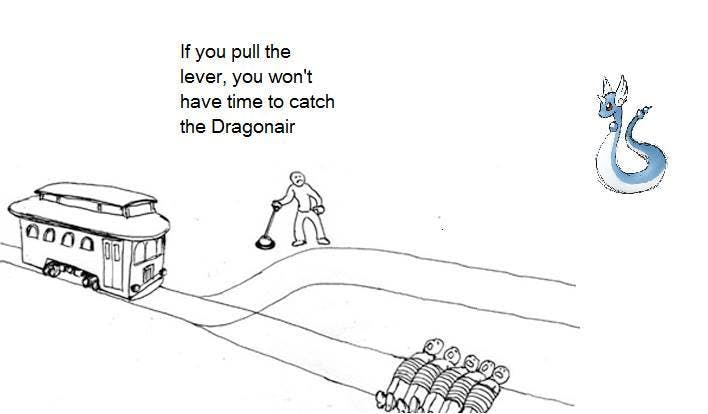
August: The Woke Toddler
During this election season, every liberal pundit had a precocious toddler who offered incisive commentary on Donald Trump and the current state of American politics.
My 4 yr old daughter, seeing a picture of Donald Trump, asks me "why is that man so afraid daddy?" "I don't know, sweetheart, I don't know."
— Stephen Marche (@StephenMarche) March 21, 2016
"What is the green party, momma. Is it Donald Trump's party?" --Milo, 8
— Clara Jeffery (@ClaraJeffery) July 26, 2016
we'll see
This spawned the “woke toddler” meme, which made fun of the smug parents who were tweeting the wise innocent words that their babes were apparently spouting. But what happens when you give a toddler a trolley problem? As this video shows, it seems that even the wokest of toddlers are not so innocent after all.
September: Donald Trump Jr. Skittles
The trolley problem is a very bad way to think about real-life issues, which is why it is a very good meme. So, of course, in response to the Syrian refugee crisis, Donald Trump Jr. tweeted the infamous Skittles scenario—asking if the U.S. would sacrifice the lives of a few to save the lives of many—which is, in essence, a trolley meme. The problem is that refugees are people, Skittles are candy, and the answer to Trump Jr.’s question should be “yes.”
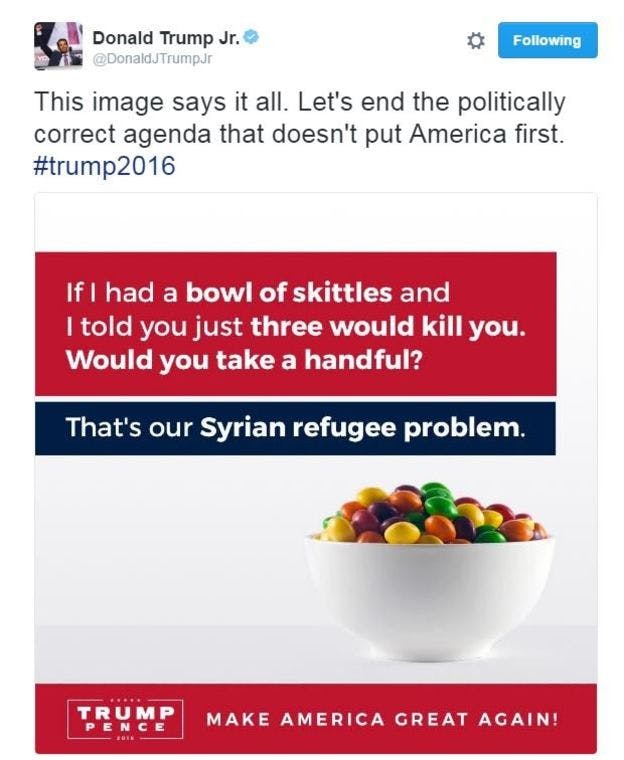
November: Election
Then, of course, we had the trolley problem that was Election 2016 itself. The meme was funny at the time, but now this is the trolley problem that we will face for the next four years and probably for the rest of our lives.
